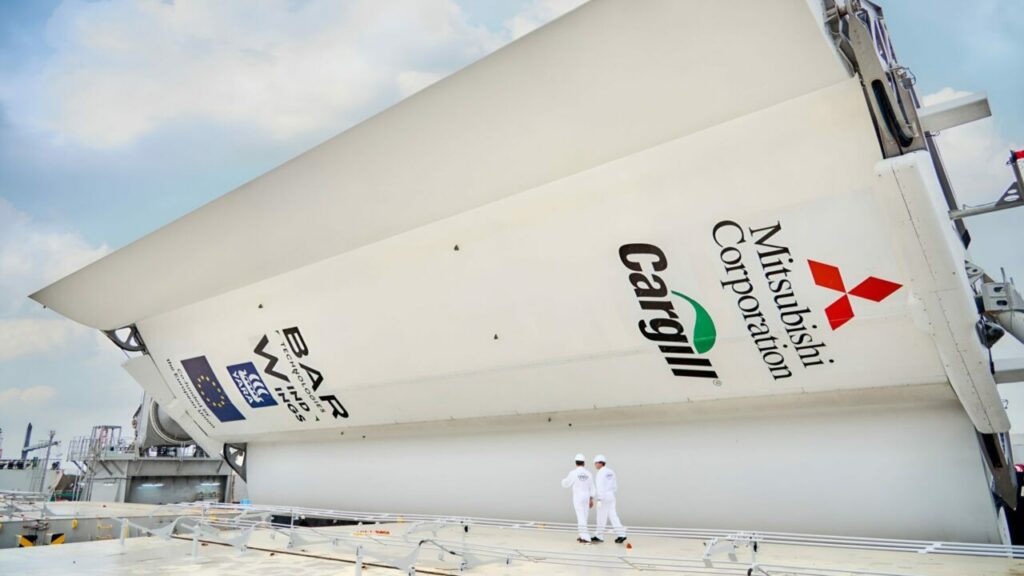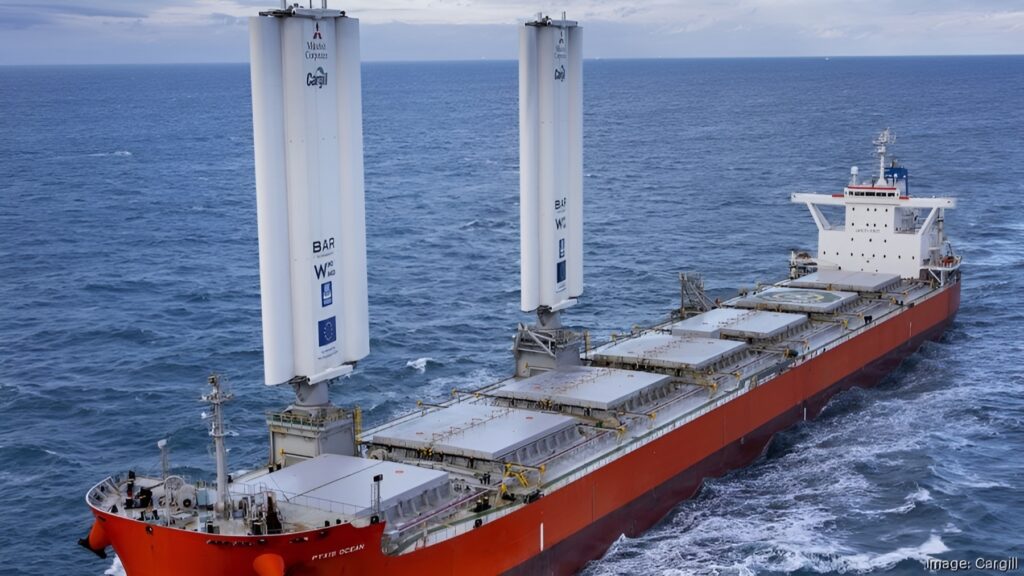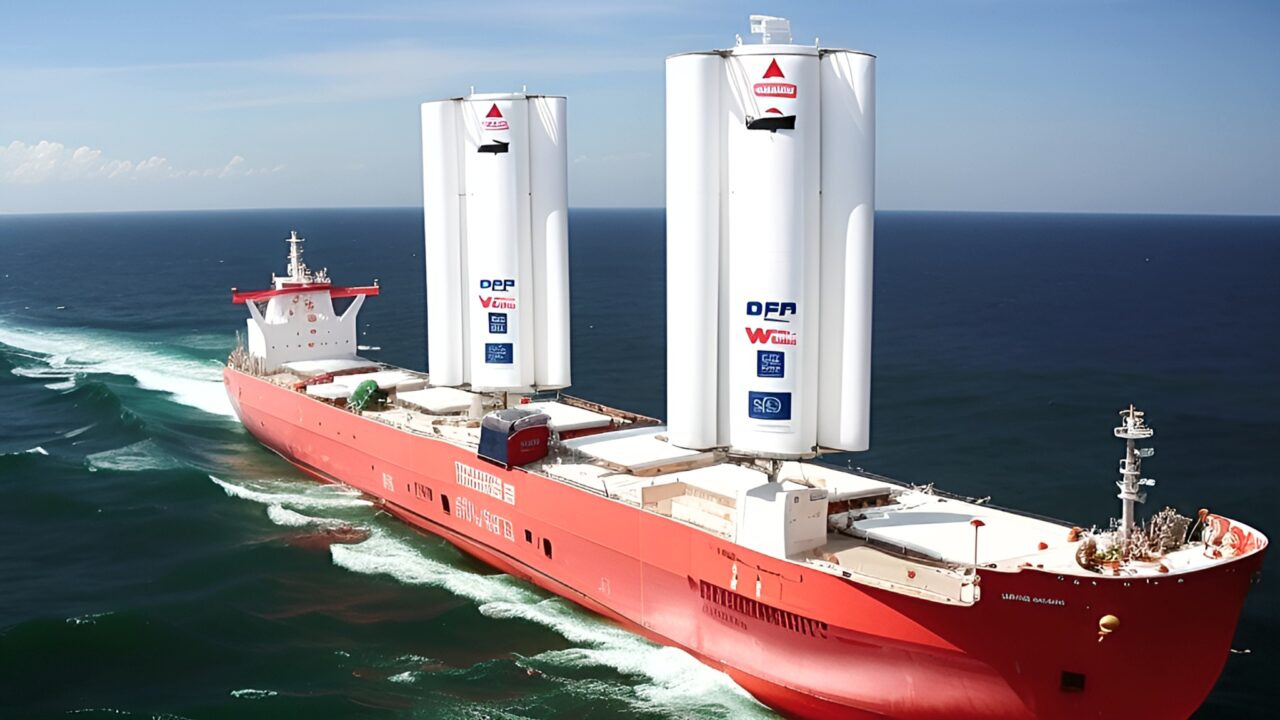Imagine a cargo ship, but not an ordinary one. Pyxis Ocean is a wind-powered ship and the world’s first winged ship leading the future of shipping solutions. This 47,000-ton bulk carrier, chartered by Cargill, has completed its six-month trial period with impressive results. Here are the details…
Winged ship Pyxis Ocean: Saving fuel and reducing carbon emissions
The standout feature of the winged Pyxis Ocean is the “WindWings” developed by BAR Technologies. These wings, unlike traditional sails, are massive structures about 37.5 meters tall made from steel and glass fiber. The automatic system ensures these wings capture the wind at optimal speeds, allowing the ship’s crew to significantly reduce the use of diesel engines and save a substantial amount of fuel.

During its six-month trial period, Pyxis Ocean saved 3.3 tons of fuel per day, equivalent to approximately 3.600 Euro. This also means preventing the emission of around 10,886 kilograms of carbon dioxide into the atmosphere daily, equivalent to the pollution generated by about 480 cars taken off the road.
Overall, the ship reduced pollution by 14%, demonstrating that maritime transportation can step into a cleaner and more sustainable future. If maritime transportation were a country, it would be the sixth-largest polluter in the world. However, solutions like wind power can change this scenario.

According to the information provided, the successful journey of the winged ship Pyxis Ocean is just the beginning. There are plans to install these wind wings on cargo ships worldwide. Other companies are also starting to develop their green cargo ships. BAR Technologies CEO John Cooper mentioned that installing three wings on each ship would increase fuel savings and emission reductions by 1.5 times.
With more ships using wind power, we can expect less pollution, more savings, and a safer climate future. These smart sails are proving that we are on the right path to transport the world in a greener and more innovative way.
The wind-powered winged Pyxis Ocean is a promising example of the future of maritime transportation. According to the results shared by Cargill, these technologies that protect the environment and reduce costs can revolutionize the shipping industry. What do you think? You can share your thoughts in the comments section below.














